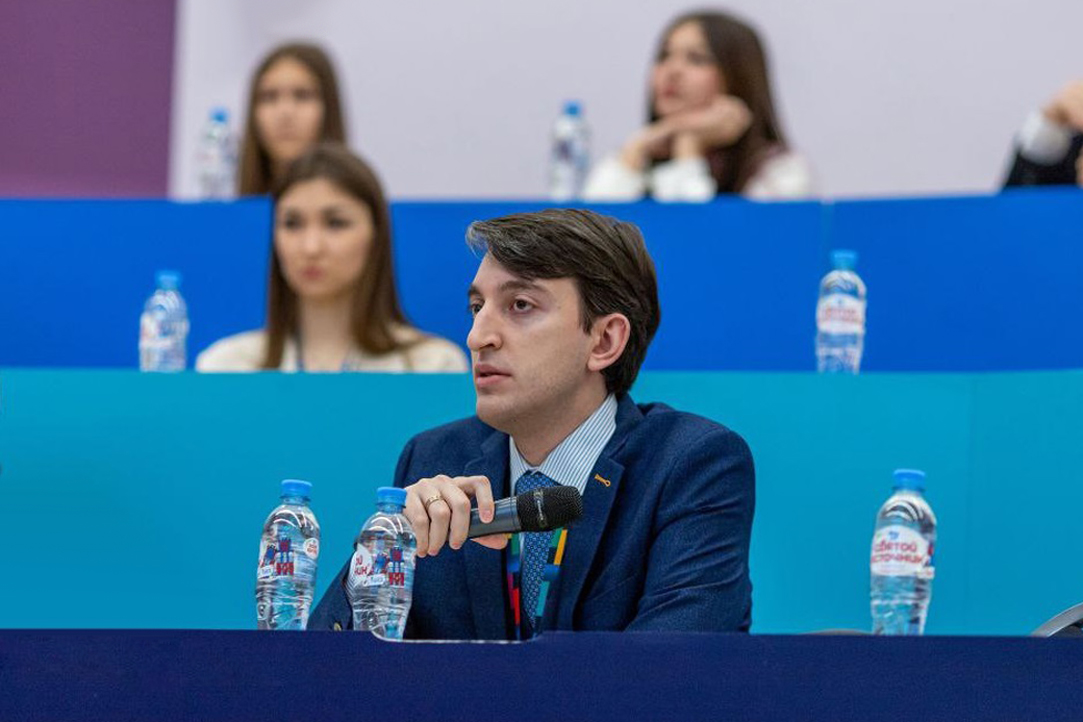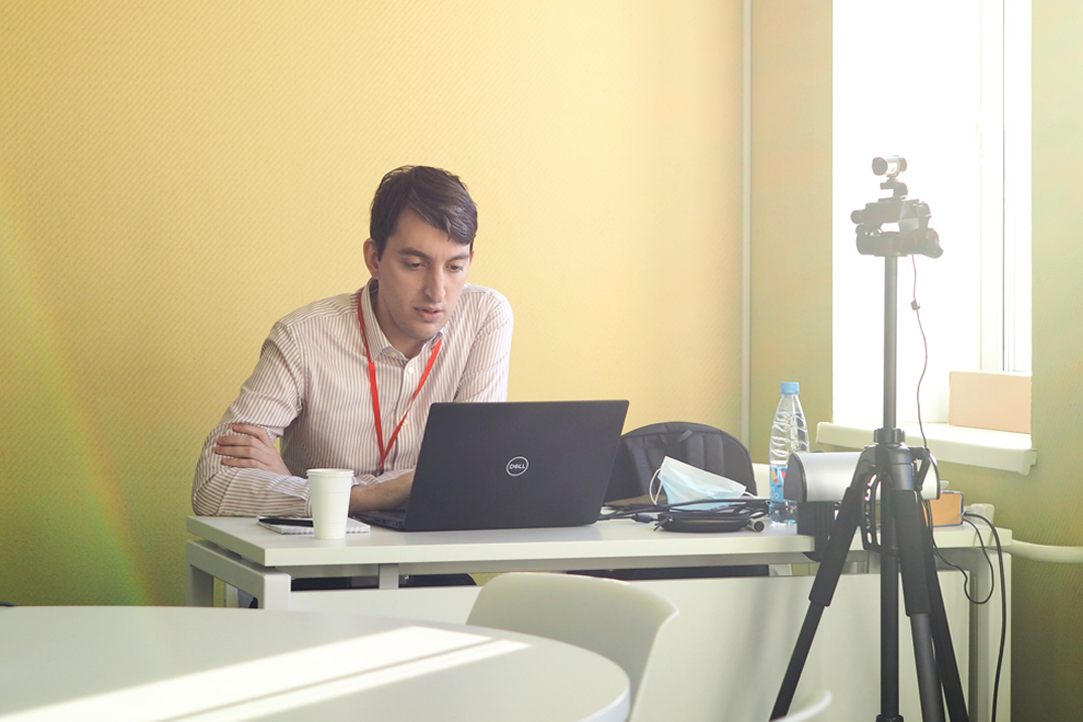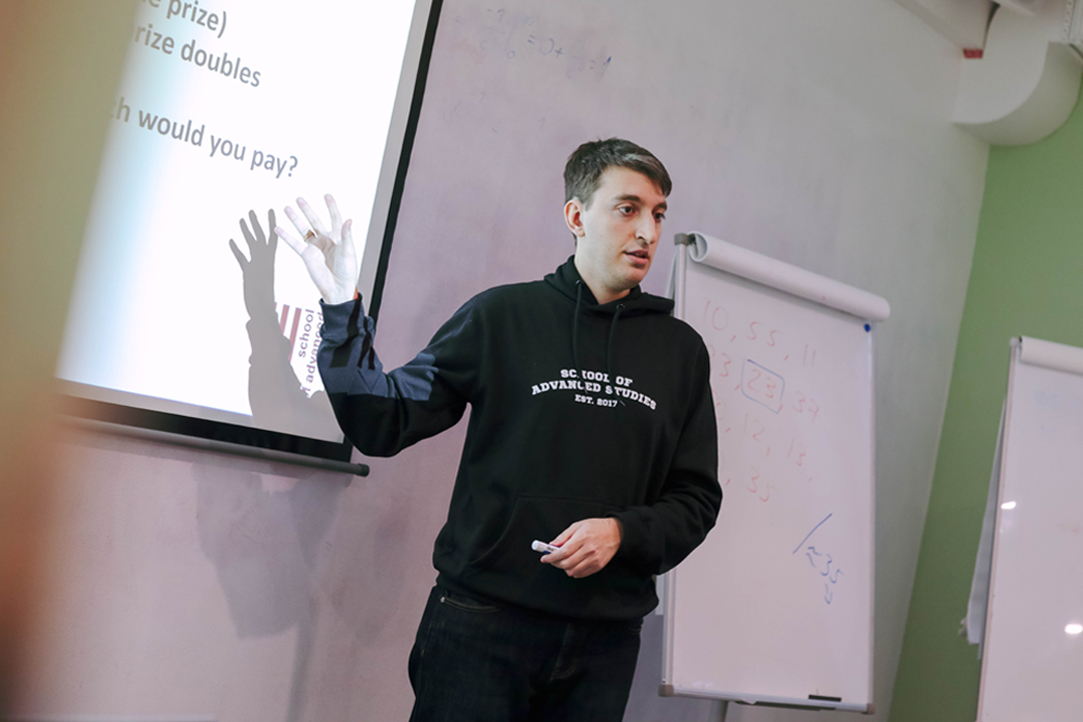“Alma Mater Wants Us Back”

- Can you share your experience as a PhD student? Tell us how you got into Florida State University and what led to that decision. Did you have any prior research experience, and if so, from where? Was it hard for you to study there?
My story is quite simple. While studying at ICEF, I developed an interest first in Game Theory and then in Behavioral Economics. Then, while writing my bachelor’s thesis, when I already made my mind up about doing a PhD, my supervisor Alexey Belyanin recommended Florida State University. I still have that notebook where I put this name down – Florida State University.
The learning process itself turned out to be challenging. But ICEF had prepared me very well for it. It was nice to learn Florida State University held placement examinations among its Y1 PhD students. They take place in May and have a duration of four hours – just like at ICEF. I must say, not only did my experience from ICEF help me pass all required courses and examinations, it helped me become a good researcher. The skills ICEF cultivates in its students came very much in handy, the most important ones being short- and long-term planning, task prioritization, and teamwork skills.
- How good should a student be to be announced by Florida State University as its Outstanding Graduate Student of Economics and be honoured with Irwin and Peggy Sobel Award?
As far as I was told, this award recognizes students who have distinguished themselves academically and achieved good research progress. There’s actually no formal criteria list to meet to qualify for it, and the award ceremony is pretty much like that of Oscar awards, with envelopes with winners’ names inside opened live onstage at the grand meeting of faculty and graduate students.
- What are your current research interests and what have you worked on before?
My primary focus in on Behavioral Economics. I specialize on laboratory experiments and mathematical models describing interactions between economic agents. One of my current projects explores competition among firms (for example, online cinemas) for customer loyalty.
Another one deals with blockchain and cryptocurrency. My publications in top journals are what I consider my so to speak standard achievements, whereas the experience I take special pride in took place in Tyumen State University, where I had the honour to be the founder and director of Behavioural Laboratory and was curating the Economics major as the Economics Programme Director. I think I coped with my task well because my lab conducted world-class research, involving young researchers and myself as their supervisor. It is with warmth that I recall my “Siberian” experience.

- Are there any tasks you have set for yourself to achieve in the near term? What seems to be your biggest challenge as a researcher in your chosen field?
I am in the middle of completing my current projects but have already joined my colleagues here at HSE for a few more. I’d say my biggest challenge comes from economic experiments being a very time-consuming activity, so the problem here is time. One seems to be always pressed for time when doing multiple projects in parallel.
- You joined ICEF this past year. Can you share your impressions of working with students? How different are the students of today from those you studied with here at HSE?
I don’t think this generation of the ICEF students is any different. They are as motivated, smart, and hardworking as I’ve known them to be. I appreciate their being curious and the out-of-the-box questions they ask me.
- Now that you’ve rejoined your alma mater as a teacher, can you say there’s been a lot of change within HSE over these ten years?
I’m afraid I can’t give you any objective answer. It’s been years and I am now a teacher. But given how much I felt at home at HSE the moment I rejoined it, there hasn’t been a lot of change. True, the campus on Pokrovka – this amazing building – has made HSE an even better place, but I can feel familiar atmosphere. This is largely because HSE has retained the majority of its original faculty members. I’m very glad to be part of their team.
- What advice would you give yourself when you were a student?
I don't know. Questions like this imply there’s an act regretted or something that could have been done better. I like how my student years turned out to be – they flew like one instant – and I like where they have led me to.
- Are there any books, other than economics, you would recommend your students to read?
Let me recommend the one on economics, if you please. It’s by Nobel Prize winner and one of the founding fathers of Behavioral Economics Daniel Kahneman and it’s called Thinking, Fast and Slow.
- What is your idea of a good break from teaching and researching?
As someone who spends most of his time indoors, I enjoy the fresh air and long walks – more so during travel. Even a one-day trip to localities near Moscow can give a reboot good enough to get yourself in a productive mood. Travel is an integral part of my life and the way I spend my free time.
